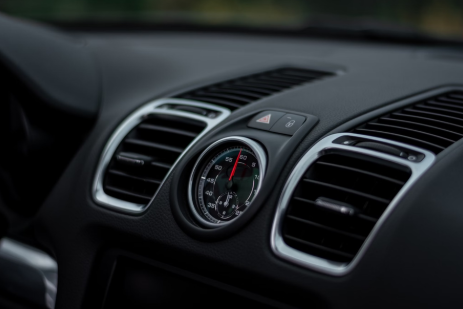How to Maintain Your Car’s Heater

A well-functioning car heater is essential for comfort during cold weather. Not only does it provide warmth, but it also helps to defrost the windshield, ensuring clear visibility.
In this blog, Christian Brothers Automotive offers key insights on why you should prioritize car heater maintenance as well as how you can maintain your car’s heating system.
How Your Car’s Heater Works
A car's heating system utilizes the engine's coolant to generate heat. As the engine operates, it produces a significant amount of heat. This heat is transferred to the coolant, a fluid that circulates throughout the engine's cooling system. The coolant, now heated, flows through the radiator core, and the radiator's fins help to dissipate excess heat into the surrounding air.
In addition to the radiator, the coolant also passes through the heater core, a small radiator located inside the vehicle's cabin. A fan blower draws air from outside the car and forces it over the heater core. As the air passes over the hot heater core, it becomes warm, and the warm air is sent to the car’s cabin through the vents.
Why Car Heater Maintenance Is Important
Neglecting car heater maintenance can lead to various issues, from reduced heating efficiency to complete failure. Besides making sure your heater functions, key reasons why car heater maintenance is crucial include the following:
- Optimal Heating Performance: Regular maintenance ensures your car's heater operates at its peak efficiency, providing consistent and comfortable warmth.
- Preventative Measures: Routine checks can help identify and address potential problems before they escalate, saving you time and money.
- Enhanced Safety: A properly functioning heater helps to prevent fogged-up windows, which can impair visibility and increase the risk of accidents.
- Increased Longevity: Proper maintenance can extend the lifespan of your car's heating system, reducing the need for costly repairs or replacements.
By prioritizing car heater maintenance, you can enjoy a comfortable and safe driving experience throughout the colder months.
9 Steps to Take Care of Your Car’s Heating System
Take the following actions to maintain your car’s heater:
Check Coolant Levels: The coolant (also called antifreeze) is crucial for your car's heating system. Check the coolant reservoir monthly and ensure it's between the minimum and maximum lines. If low, top up with the correct type of coolant for your vehicle.
Inspect the Hoses: Regularly examine the hoses connected to your radiator and heater core. Look for signs of wear, cracks, or leaks. Replace any damaged hoses promptly to prevent coolant loss and potential overheating.
Replace the Coolant: Over time, coolant can become acidic and lose its effectiveness. Refer to your car's manual for the recommended coolant replacement interval, typically every 30,000 to 50,000 miles. Flushing and replacing the coolant helps maintain optimal heating system performance.
Clean or Replace Filters: The cabin air filter affects the air quality inside your car and can impact heating efficiency. A clogged filter restricts airflow, reducing heating effectiveness. Clean or replace it according to your vehicle's maintenance schedule, usually every 15,000 to 30,000 miles.
Test the Thermostat Functionality: The thermostat regulates coolant flow and affects your car's heating. If it's stuck open or closed, it can cause heating issues. Have a mechanic check its operation during regular maintenance or if you notice inconsistent heating. It is also important that you check whether the temperature controls are the source of the issue.
Clean the Radiator: A clean radiator is essential for proper heat exchange. Regularly inspect the radiator for debris like leaves or insects that can obstruct airflow. Gently clean the exterior with a soft brush or have it professionally cleaned if necessary.
Check the Heater Core: The heater core is responsible for providing warm air to your car's interior. If you notice a sweet smell, fog on the windows, or poor heating, it might indicate a leaking or clogged heater core. Have it inspected and cleaned or replaced if needed.
Investigate Smells and Airflow Issues: If you notice a sweet smell (indicating a coolant leak), musty odor (possible mold in the system), or weak airflow from the vents, don't ignore it. These could be signs of various heating system issues. Have a professional diagnose and address the problem to maintain your car's heating efficiency and your safety.
Schedule Routine Inspections: Getting your car serviced and inspected is important for the overall health of your vehicle, and it can help you identify and address any issues that might impact your car’s heater.
Let Us Service Your Car’s Heating System
Christian Brothers Automotive can help you get your vehicle and its heating system ready for fall and winter weather. We offer comprehensive maintenance and inspection services to identify and address any issues that may be affecting your vehicle's heating system. Whether it's a simple thermostat replacement or a more complex mechanical problem, we'll provide a detailed assessment and clear estimate for any necessary repairs.
Experiencing heater issues? Need help inspecting your hoses and completing heater maintenance? Find your local Christian Brothers Automotive today!


[1].jpg)
[2].jpg)
sunwash-tech-with-customer.png)
